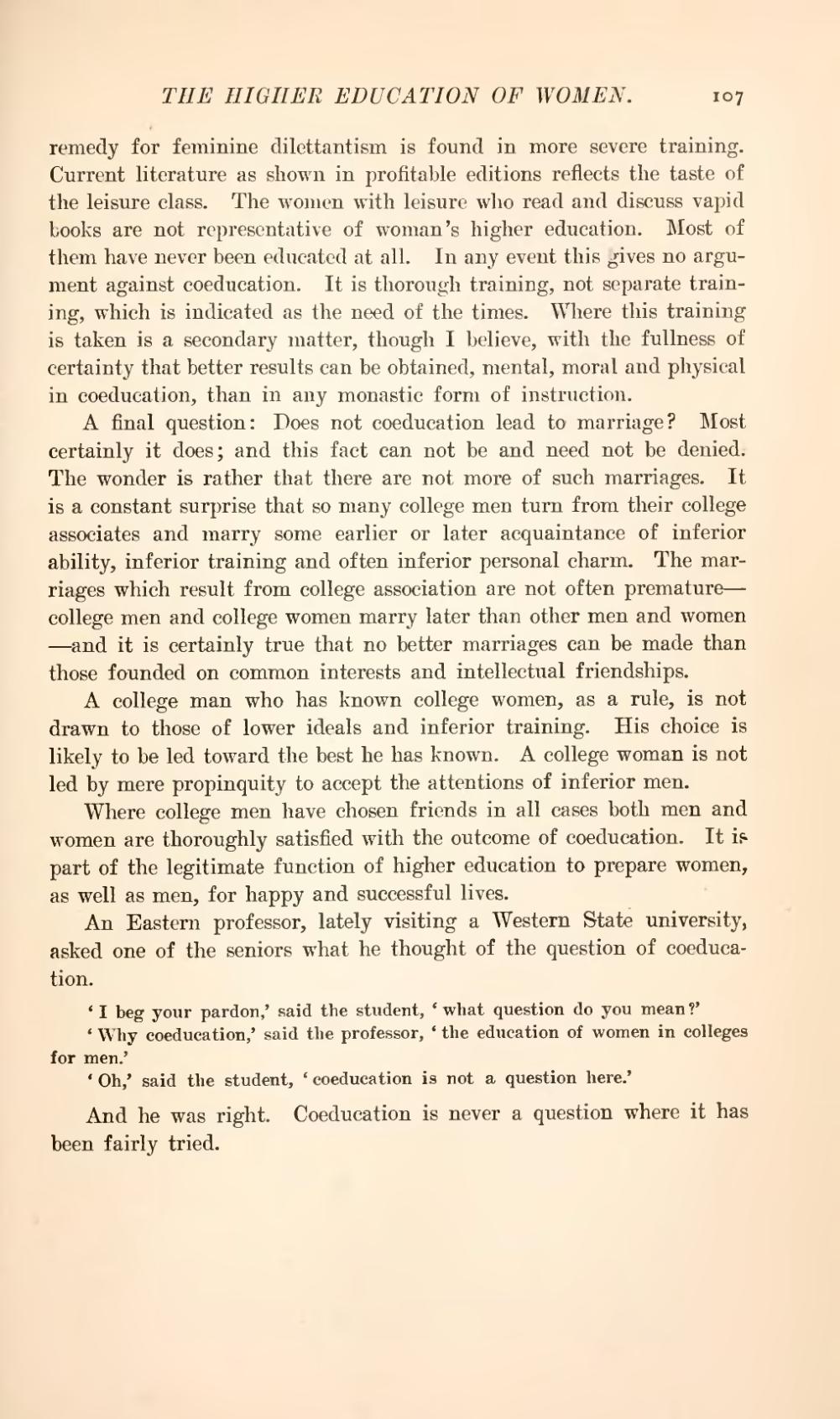remedy for feminine dilettantism is found in more severe training. Current literature as shown in profitable editions reflects the taste of the leisure class. The women with leisure who read and discuss vapid books are not representative of woman's higher education. Most of them have never been educated at all. In any event this gives no argument against coeducation. It is thorough training, not separate training, which is indicated as the need of the times. Where this training is taken is a secondary matter, though I believe, with the fullness of certainty that better results can be obtained, mental, moral and physical in coeducation, than in any monastic form of instruction.
A final question: Does not coeducation lead to marriage? Most certainly it does; and this fact can not be and need not be denied. The wonder is rather that there are not more of such marriages. It is a constant surprise that so many college men turn from their college associates and marry some earlier or later acquaintance of inferior ability, inferior training and often inferior personal charm. The marriages which result from college association are not often premature—college men and college women marry later than other men and women—and it is certainly true that no better marriages can be made than those founded on common interests and intellectual friendships.
A college man who has known college women, as a rule, is not drawn to those of lower ideals and inferior training. His choice is likely to be led toward the best he has known. A college woman is not led by mere propinquity to accept the attentions of inferior men.
Where college men have chosen friends in all cases both men and women are thoroughly satisfied with the outcome of coeducation. It i part of the legitimate function of higher education to prepare women, as well as men, for happy and successful lives.
An Eastern professor, lately visiting a Western State university, asked one of the seniors what he thought of the question of coeducation.
'I beg your pardon,' said the student, 'what question do you mean?'
'Why coeducation,' said the professor, 'the education of women in colleges for men.'
'Oh,' said the student, 'coeducation is not a question here.'
And he was right. Coeducation is never a question where it has been fairly tried.
